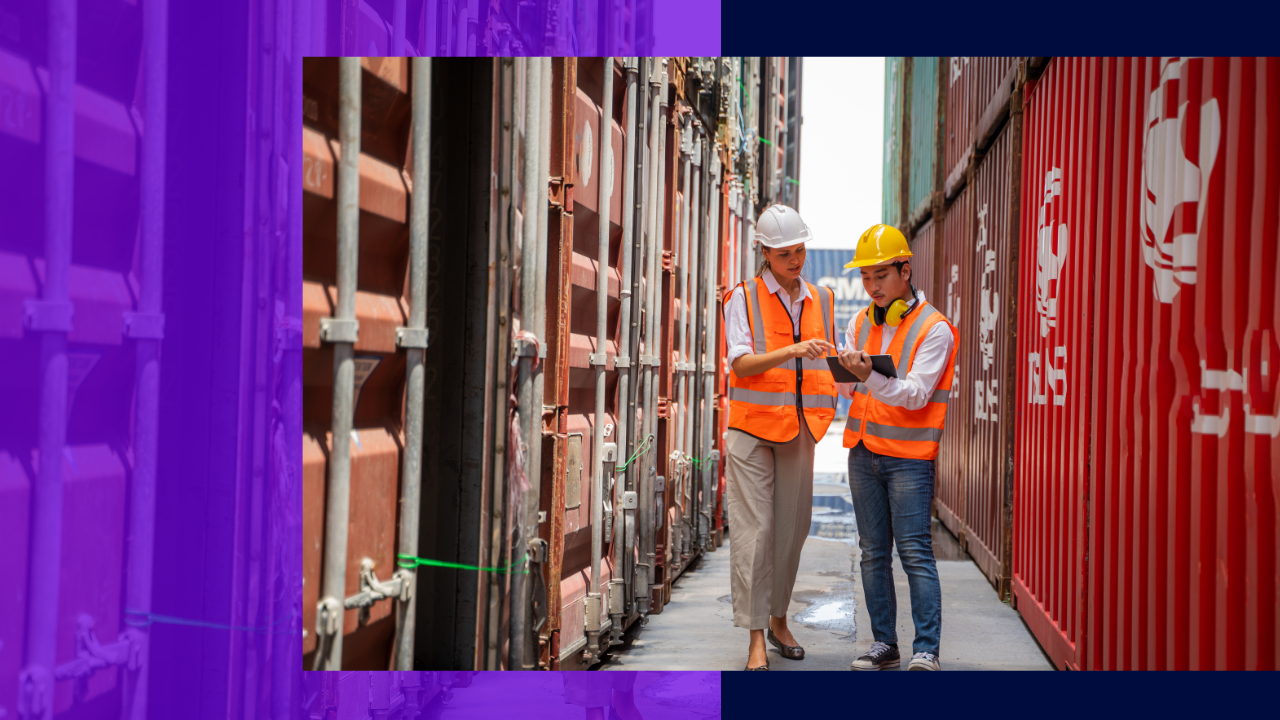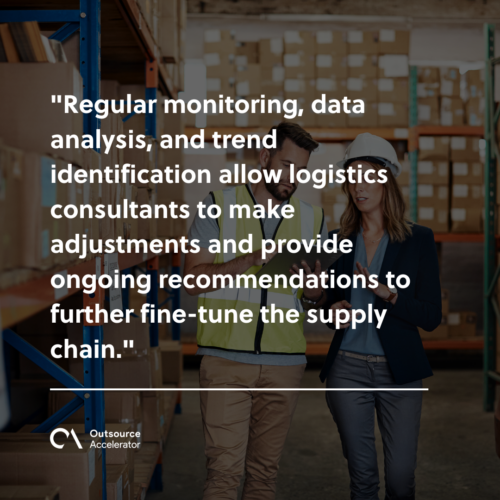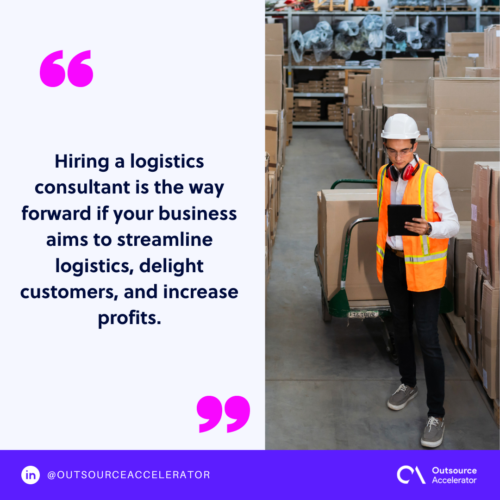Understanding the role of a logistics consultant

Logistics is an indispensable factor in the triumph of every business. Harvard Business Review says it is essential to strategy, especially in large companies.
HBR also claims logistics highlights the difference between an enterprise’s success and failure. Effective logistics strategies involve decisions in their long-term implications.
This is why many businesses are turning to logistics consultants.
Let’s explore the role of a logistics consultant and the benefits it brings to your business.
What is a logistics consultant?
A logistics consultant specializes in analyzing, evaluating, and improving supply chain management processes.
Logistics consultants’ mission is clear: to work closely with businesses, unearth inefficiencies within logistics operations, and design bespoke strategies for optimization.
They aren’t just experts — they’re champions of operational excellence.

Duties and responsibilities of a logistics consultant
Logistics consultants wear multiple hats, and their roles are diverse. Here’s a glimpse into their key responsibilities:
Assessment and analysis
The journey begins with meticulously assessing a company’s existing logistics processes.
A logistics consultant conducts a comprehensive analysis of the supply chain, unveiling bottlenecks, inefficiencies, and areas for improvement.
This may involve evaluating:
- Transportation systems
- Inventory management practices
- Distribution networks
Strategy development
Armed with assessment insights, logistics consultants craft tailored strategies and recommendations for operational optimization.
They consider factors such as cost-effectiveness, sustainability, risk management, and customer satisfaction to design robust logistics solutions.
These strategies may include:
- Implementing new technologies
- Improving inventory forecasting
- Optimizing warehouse layouts
- Enhancing transportation routes
Implementation support
The work doesn’t halt at strategy development. Logistics consultants dive into the trenches, collaborating with stakeholders, suppliers, vendors, and internal teams.
Their aim is to ensure the seamless execution of recommended solutions.
Logistics consultants may assist in:
- Sourcing new suppliers
- Negotiating contracts
- Overseeing the implementation process to guarantee effective change management
Continuous improvement
Logistics consultants understand that logistics isn’t a one-time fix — it requires continuous improvement.
They establish key performance indicators (KPIs) to measure the effectiveness of the implemented strategies and monitor progress regularly.
Regular monitoring, data analysis, and trend identification allow them to make adjustments and provide ongoing recommendations to further fine-tune the supply chain.

Skills to look for in a logistics consultant
Effective logistics consultants possess a unique set of skills and attributes, including:
1. Analytical skills. They excel in data analysis, allowing them to identify inefficiencies and cost-saving opportunities within a company’s logistics operations.
2. Problem-solving abilities. A logistics consultant is adept at devising creative solutions to complex logistical challenges.
3. Communications skills. Logistics consultants need to effectively convey their strategies and ideas to internal teams and external partners.
4. Industry knowledge. Staying informed on industry trends and best practices allows them to recommend innovative solutions and technologies.
5. Project management expertise. Managing multiple projects simultaneously is common for logistics consultants. They must be skilled project managers to ensure each initiative’s success.
Benefits of having a logistics consultant
Hiring a logistics consultant offers a wide array of advantages to businesses, including:
Cost reduction
Logistics consultants possess the magic wand to reduce costs. They help optimize supply chains, improve inventory management, and streamline transportation networks.
A logistic consultant ensures resources are allocated efficiently and eliminates wasteful practices.
Improved efficiency
A logistics consultant identifies areas of improvement and deploys strategies to streamline operations. This enhances efficiency, reduces lead times, and improves overall customer satisfaction.
Risk management
Effective risk management is the lifeblood of logistics. Logistics consultants help identify and mitigate potential risks. These risks could be supply chain disruptions, compliance issues, or delays in delivery.
A consultant’s expertise minimizes the impact of disruptions and ensures business continuity.
Competitive advantage
A well-optimized supply chain gives businesses a competitive advantage in the market.
A logistics consultant helps companies differentiate themselves by providing efficient and reliable services. This results in enhanced customer loyalty and a larger share of the market.
Hire a logistics consultant now
In a world where businesses perpetually strive for growth, cost savings, and competitive advantages, hiring a logistics consultant is a strategic move.
Logistic consultants bring a wealth of experience, expertise, and a fresh perspective to the table. They have the ability to transform logistics operations and impact the company’s overall success.
To stay ahead of the competition and achieve operational excellence, consider hiring consultants who can give tailored solutions to meet your business’s unique needs.
Moreover, outsourcing logistics to experts can further boost efficiency and save costs for your business.
Whether you’re a new enterprise or an established one aiming for improvement, the role of a logistics consultant is undeniable.
Hiring a logistics consultant is the way forward if your business aims to streamline logistics, delight customers, and increase profits. This expert can help your business navigate the complex and ever-evolving world of supply chain management.

So, why wait? Embrace the future and secure the success of your logistics today!







 Independent
Independent




